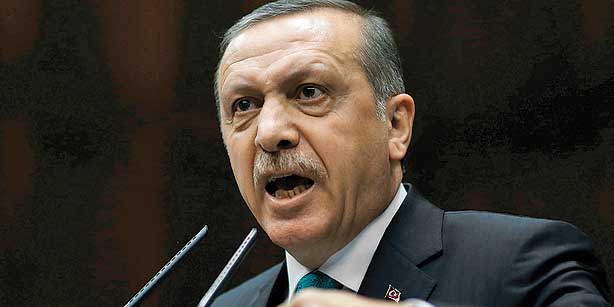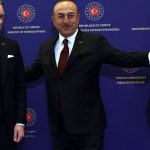Of late, a sanctioned Russian ship discharged and loaded ‘secret’ cargo under the cover of darkness at a naval port in South Africa and was later spotted in the waters of Mozambique. The South African government kept quiet about it. The ship, The Lady R, (Russia?)has been accused of moving weapons and arms for Russia. In the tremors of the episode, Turkish Foreign Minister visited South Africa. Was the minister there as part of the now usual Erdogan cover-up face-saving activities for Putin? What sort of cargo was it? What was its origin? What was the exercise all about? Could this be a Calculus (geo)politics case?
When I was winding up this analysis, news from the Maritime Executive revealed that in February, three Chinese naval vessels and two Russian warships will join a South African Navy exercise off the nation’s east coast. Could the dating of the exercise be a Calculus case? It is 24 February 2023 – exactly one year after Russia invaded Ukraine. Could this be part of the Russian Federation’s so-called special military operations in Ukraine one-year anniversary celebrations? What has South Africa got to do with that? Could Pretoria and the Kremlin have special relations which the rest of the world cannot comprehend? Does this provide a clue to South Africa’s reluctance to be part of the sanctions against Russia following the Ukraine invasion?
This also smells BRICKS. President Erdogan about five years ago expressed Turkey’s big desire of coming on board to form “BRICKST” when he was invited to a summit by then South Africa President Cyril Ramaphosa. Did the purpose of the Turkish Foreign Minister’s visit to South Africa have any bearing on this? Or was it simply to brighten up Erdogan’s chances for reelection after succeeding to accede membership of the group that looks forward to reduce members’ reliance on the US and the West in terms of trade? With a troubled economy, Turkey has a lot to gain from the BRICKS in trade and even defense agreement areas. Another Calculus case?
Turkish Defense Minister Hulusi Akar talks with his Ukrainian counterpart Aleksey Reznikov and stresses the need for an immediate cease-fire. This follows Turkey hosting the Ukrainian and Russian human rights commissioners to discuss series of humanitarian issues including a potential prisoner swap and setting up a humanitarian corridor as part of their ongoing Turkey mediated talks in Ankara.
Russian human rights commissioner Tatiana Moskalkova says on her telegram account that the two sides agreed on exchanging about 40 prisoners. Ukrainian human rights commissioner Dmytro Lubinets says the talks focused on release of “Ukrainian civilian captives, particularly in Crimea.” Turkey chief commissioner Sert Makoc described the talks as “very significant” adding, “we would like to set up a humanitarian corridor.” Their meeting was held on the sidelines of a two-day international humanitarian rights conference which was also attended by Erdogan and US ambassador to Ankara.
Now over to Calculus. In what capacity could have Erdogan attended the conference? As an invitee, President of Turkey, or more, as we express in Africa, as an incumbent looking forward “to brighten one’s star” for reelection? Hulusi Akar, a retired, fully qualified army general, PhD holder and seasoned international relations expert, who has no party attachment in Turkey, knows much better what he has on the sleeves for differentiation, integration and putting to the function theory for the benefit of his country within the limits of Erdogan activities at the helm of power.
Then imagine a possible face-to-face meeting between vowed adversaries, Turkey’s Recep Tayyip Erdogan and Syria’s Bashar al-Assad brokered by Russian Federation Vladimir Putin. Could this serve as a marginal sense of Erdogan’s opportunity from the Ukraine war for reelection? Erdogan is quoted as saying: “As Russia, Turkey and Syria, we have launched a process through the meeting of our intelligence chiefs and defense ministers in Moscow. Then God willing, we will bring our foreign ministers together trilaterally. Then, depending on the developments, we will come together as leaders.”
Turkish Defense Minister Hulusi Akar and head of the country’s National Intelligence Organization (MIT) Hakan Fidan, meet Syrian Defense Minister Ali Mahmoud Abbas and his country’s intelligence chief Ali Mamlouk in Moscow along with Russian Defense Minister Sergei Shoigu to find “ways of resolving the Syrian crisis and the problem of refugees as well as joint efforts to combat extremist groups in Syria.
The Syria Defense Minister warned Turkish-backed opposition groups in Syria against “provocations” that could upset a potential rapprochement between Syria and Turkey, while assuring the groups that “Ankara would not sell them out…” The Calculus: In essence, where should the assurance of not being betrayed come from if not Turkey, whose Erdogan has ever been on his marks, set to wipe out the mostly Kurdish Syrian democratic forces and their associated local parties – the Democratic Union Party and the People’s Protection Front?
Even then, what message does Turkey get from the warning to Turkish-backed opposition groups? What could be the function of bringing Erdogan and Assad on the same table? Is it the Turkish electorate growing resentment to immigrants? Is it Erdogan’s thirst for power at whatever cost, even if the Syrian refugees have to jump from the Turkish frying pan into Syrian fire? Or is it the Syrian government ability to get people on wanted list without sweat?
All these are non-starters. There are reports that some Syrian refugees, in actual fact, have been forced by Turkey to sign ‘voluntary’ return home documents. This brings in what, for the sake of this analysis, can be called ‘The Calculus of Calculus’. The eventual three main players in the act — adversaries Erdogan and Assad and broker Putin – suffer from the same ‘disease’ of inexcusable traits for violation of human rights across the board. Because of their Roma locuta causa finita ruling pattern, they lack tolerance for differences, leading them to fail to be fair and secure trust. The rule of law and accountability is none of their attributes. Can their set solve any human right equation between them?
In an interview with Today’s Zaman newspaper Muslim cleric expressed Turkey’s need “to generate an atmosphere in which everyone –Turks, Kurds, Sunnis, Alevis, Arabs, Syriacs and so on – can co-exist as members of the same family in happiness and prosperity.” In an another interview granted to the Iraqi Kurdish newspaper, Rudaw, in June 2013, he said “fundamental rights and freedoms should not be seen or used as a bargaining chip. It is essential to avoid non-legitimate means which transgress the bounds of law and which involve violence, whatever the purpose.”
Finally, because this analysis has a special bearing on Turkey, it should suffice to fall back on what Scholar Said Nursi said about a century ago that the fundamental problems of the country are “ignorance, poverty and disunity… because they breed despair, deception, circumvention, mutual distrust and so on.” Isn’t this the state in which Turkey is going to the polls today under Erdogan, whose (mis)behaviors demand the Calculus approach to be put in their proper political perspective?
By: Fekix Kaiza
Source: Poli Turco



